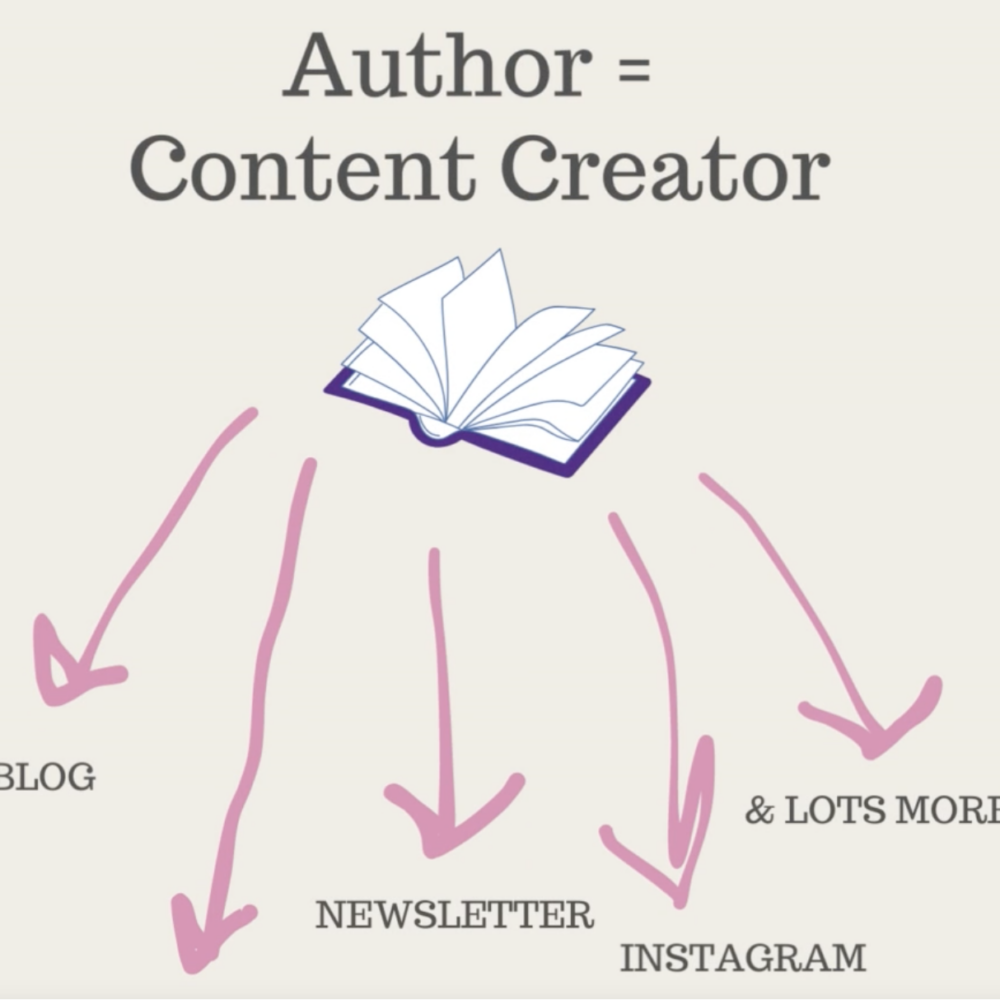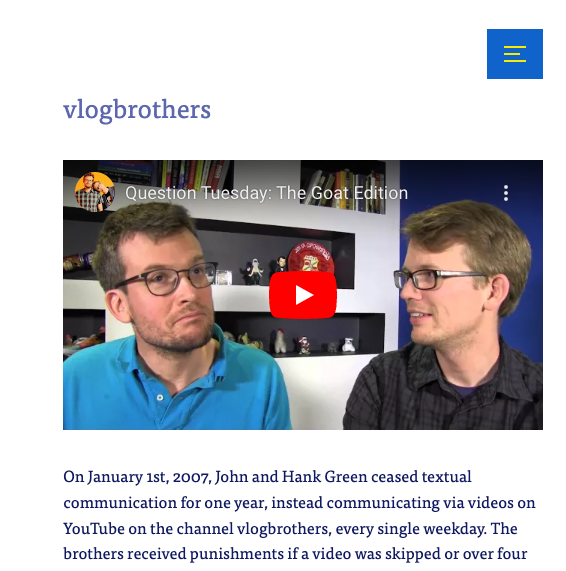
Let’s start with the basics.
What is “content marketing” and why is it useful for authors?
According to the Content Marketing Institute, “Content marketing is a strategic marketing approach focused on creating and distributing valuable, relevant, and consistent content to attract and retain a clearly-defined audience — and, ultimately, to drive profitable customer action.”
If that’s sounds too technical for your writerly taste, on this website, I liken content marketing to a party conversation. In either case, the goal is to authentically connect with audiences who might respond to your voice, what you have to say — and, ultimately, buy your books.
How does content marketing work specifically for authors?
Whether entertaining (like romance novels) or useful (like cookbooks or finance books), authors spend their lives producing… content. The idea of content marketing is to share some the content you’ve created — or content related to what you’ve created — free of charge in order to build an audience and give prospective readers an idea of what / who they’re getting when they buy your book/s.
Authors have an advantage in that they’re already used to creating content — but, being a largely introverted and book-centric bunch, bite-sizing some of the content and then sharing doesn’t always come automatically to some of us.
Where exactly do I share this “content”?
Authors can create and share content through a variety of media that you’re likely familiar with:
- blog
- newsletter
- podcast
- video
- social media
- social writing platforms (like Medium or Wattpad)
- online courses
Content marketing can actually extend to giving free lectures at libraries in your specialty subject matter.
I do lots of that anyway – does that mean I’m an author who “content markets”?
Yes, sort of. But to be most efficient and effective with your content marketing as an author, you really need to have a least some strategy and tactics in place, so that your efforts all serve your audience building goals.
Strategy means defining what types of content you’ll use to engage your readers. Your tactics can include search engine optimization (SEO), consistently posting, capturing reader emails for your newsletter, etc.
What are some examples of successful author content marketing?
An example of a content marketing star is John Green, who built an audience of readers for his young adult books (like The Fault in Our Stars) with a video blog done with his brother, Hank Green. Using online video, the Vlog Brothers very intelligently, very thoughtfully discuss subjects of interest to young adults and new adults as well as jokes, etc. John also — periodically — talks about the books he is working on. The vlog gave rise to their Nerdfighter subculture and numerous bestsellers and movie deals.
Another example is the book marketing campaign for Elizabeth Gilbert’s Big Magic. Though a bestselling author (Eat, Pray, Love) there was no guarantee that the journalist / memoirist / novelist would make the transition to self-help writer. But her publishing team launched a series of pre-publication podcasts — which included well-known special guests — and a robust series of content-heavy guest spots on other popular self-help gurus’ online “shows” to make their audiences aware of her content and of the Gilbert’s new book.

The best content marketing is true to you as an author
For content marketing to be effective, it should grow naturally out of your book, and your philosophies and your message. Whether the content you share is a natural outgrowth of your personality (like the Vlog Brothers), or crafted strategically for effect (like the campaign for Big Magic) — you want to stay true to yourself and your … well, I was going to write “your brand” but that’s a larger conversation.
Content marketing is not about the hard sell of your book
Content marketing is about enticing audiences (including prospective buyers) with a bit of your content, a bit of yourself. It is not about bombardment with sales messages, which only serve to turn people off. Content marketing is about engaging prospective readers by sharing with them who you are and what you create.
Of course, you can let the audience know you have books available at the bottom of your newsletter — and certainly give them the “insider” first look at new books and book jackets, as members of your loyal audience — but promoting your own work should only be a small portion of your content output, reserved for special announcements, book launches, public appearances, etc.
Content marketing as an author requires focus and consistency.
Content marketers are rewarded over time as their audiences build. Hey, John Green and his brother started their vlog in 2007. But as the readers / viewers become engaged and loyal over time, a portion of them might naturally drop off — but a portion will decide to plunk down money when they determine the content is likely to appeal to them.
Learn more about the elements of content marketing, and see it in action with case studies — how the same strategic principles that large companies use can work for authors.
Leave a Reply